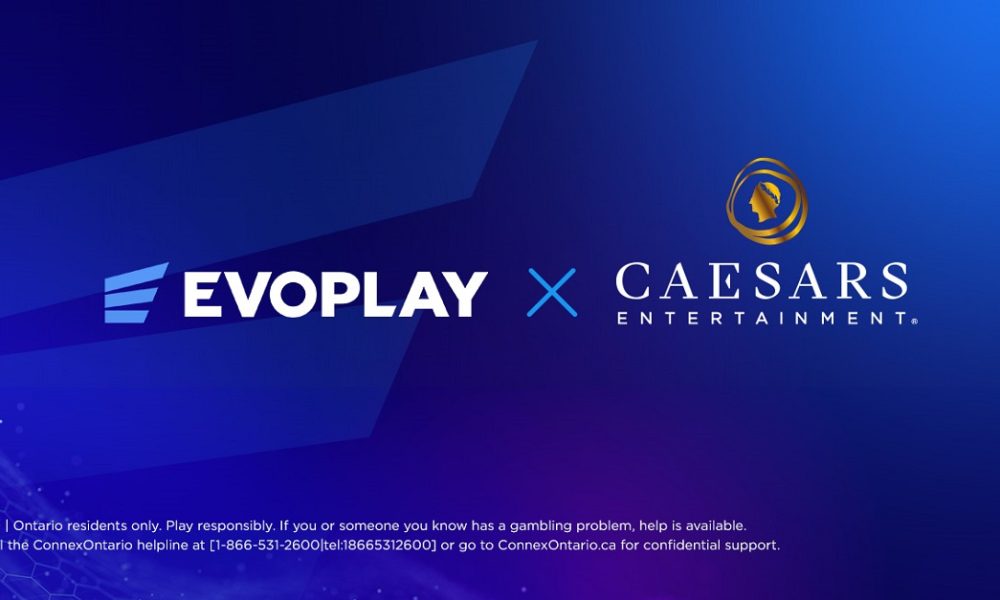Canada
Leading product development and martech supplier approved by DGE to enter Garden State with PlayStar signed up as inaugural partner
The Unit, the leader in nearshore product development for sports betting and igaming, is to launch its services in New Jersey after agreeing a partnership with online casino operator PlayStar.
Following the Division of Gaming Enforcement’s (DGE) approval, The Unit is now licensed to offer its world-class, scalable and efficient products to partners in The Garden State.
The Unit has built a reputation as a world-class service provider for the sports betting and igaming sector across global markets over the past five years. The team specialises in developing products across a range of industry domains, including Sports, Casino, Free-to-Play and Gamification Platforms.
As part of the agreement with the DGE, The Unit will become the frontend and native mobile development partner for operator PlayStar. PlayStar launched online in New Jersey in September last year, offering access to live games of roulette, baccarat, blackjack and on-demand slots – including popular titles Starburst, Cleopatra, Megajackpots, and more. PlayStar released a fully-personalised iGaming casino app in the state the following month.
Paddy Casey, Co-Founder at The Unit, said: “PlayStar is one of the most exciting up-and-coming igaming operators in New Jersey, and we are delighted to be a part of their journey.
“This is a monumental step forward for The Unit, as we continue to offer market-leading services to operators, and we are hugely excited about the opportunities for growth available to us in the state of New Jersey.
“I would like to thank the DGE for their co-operation and for allowing us to provide our specialised services to PlayStar, which marks the start of a fascinating project.”
Dan Alexander, COO at PlayStar, said: “The Unit are a great team and have built a reputation for delivering a reliable service of the highest quality. I can thoroughly recommend them for gaming web and app development, and we look forward to working with them as we continue to grow.”
Canada
absolutebet Secures AGCO Registration as an Internet Gaming Operator in Ontario

Internet Gaming Operator by the Alcohol and Gaming Commission of Ontario (AGCO).
This significant milestone authorizes absolutebet to offer regulated iGaming services in Ontario’s legal market under the oversight of AGCO and iGaming Ontario (iGO).
The registration marks a key step in absolutebet’s mission to bring a trusted, responsible, and innovative online casino experience to Ontario players. absolutebet is committed to operating with integrity and transparency, meeting all provincial standards for player protection, responsible gambling, anti-money laundering, and game integrity.
“Securing AGCO registration is more than a milestone—it’s the start of absolutebet’s journey in one of the most exciting regulated markets in the world,” said Chen Truman, Founder of absolutebet. “We are building a brand that will grow with the Ontario community and set the stage for future expansion.”
On the regulatory milestone, Krisztina Kalla, Legal & Regulatory Compliance Advisor of absolutebet, commented: “I’m incredibly proud to see all the hard work behind this license pay off. Securing AGCO registration has taken months of preparation and close collaboration with regulators and partners. I am very happy to see the result of that work, and even more excited as we move into the launch phase and open up the absolutebet community to Ontario players in a fun and responsible way.”
Ontario is recognized as one of the most competitive and fast-growing regulated iGaming markets in North America. With AGCO registration secured, absolutebet will move forward with the final stages of its iGO onboarding process in preparation for launch.
The post absolutebet Secures AGCO Registration as an Internet Gaming Operator in Ontario appeared first on Gaming and Gambling Industry in the Americas.
Alex Malchenko Head of Sales at Evoplay
Evoplay strengthens Ontario presence in partnership with Caesars Entertainment

Evoplay, the award-winning game development studio, has partnered with Caesars Entertainment to expand its footprint in the Canadian market, following its initial entry earlier this year. The partnership integrates 20 of the studio’s top-performing titles onto Caesars Palace Online Casino, Horseshoe Online Casino and Caesars Sportsbook & Casino in Ontario, including fan-favourites such as Hot Triple Sevens, Triple Chili, and The Greatest Catch Bonus Buy.
Having announced its official entrance into Ontario in March, the collaboration with Caesars marks a significant step in Evoplay’s local strategy. Further standout releases, such as Inner Fire Bonus Buy and Hot Volcano, also launched as part of the initial package, with additional player favourites, including Fruit Nova and Ice Mania.
The collaboration underlines Evoplay’s commitment to working with leading operators to deliver high-quality content tailored to regional audiences.
Alex Malchenko, Head of Sales at Evoplay, said: “Launching with Caesars in Ontario marks a key milestone in our North American strategy.
“It reflects both the strength of our portfolio and our commitment to providing innovative, high-performing content to operators of the highest caliber.”
Ricardo Cornejo Rivas, Vice President of Online Gaming at Caesars Digital, said: “Evoplay brings a fresh and dynamic approach to online gaming, which we’re excited to offer to our players in Ontario. This portfolio of standout titles adds to our growing content library and furthering our ongoing goal of delivering top-tier entertainment experiences to our players.”
The post Evoplay strengthens Ontario presence in partnership with Caesars Entertainment appeared first on Gaming and Gambling Industry in the Americas.
Canada
iGaming Ontario Appoints Joseph Hillier as its New President and CEO

The iGaming Ontario Board of Directors has announced Joseph Hillier as the organization’s new President and Chief Executive Officer, effective September 8, 2025. Joseph’s depth in the Ontario igaming market combined with successful public and private sector careers make him the ideal President and CEO at this critical point in iGaming Ontario’s growth.
Joseph was most recently Chief Strategy Officer and Corporate Secretary at the Alcohol and Gaming Commission of Ontario (AGCO), where he delivered significant strategic and regulatory initiatives across the province’s alcohol, cannabis, gaming, and horse racing sectors. Prior to the AGCO, he served as Chief of Staff to Ontario Attorney General Hon. Doug Downey and led the development, launch and implementation of Canada’s first private sector-driven igaming market and the creation of iGaming Ontario. Joseph also spent more than a decade working in the financial and legal services sectors.
The Board expressed its sincere thanks to David Smith for serving as Interim President and Chief Executive Officer since Martha Otton’s retirement.
The post iGaming Ontario Appoints Joseph Hillier as its New President and CEO appeared first on Gaming and Gambling Industry in the Americas.
-

 gaming3 years ago
gaming3 years agoODIN by 4Players: Immersive, state-of-the-art in-game audio launches into the next generation of gaming
-
EEG iGaming Directory8 years ago
iSoftBet continues to grow with new release Forest Mania
-
News7 years ago
Softbroke collaborates with Asia Live Tech for the expansion of the service line in the igaming market
-
News7 years ago
Super Bowl LIII: NFL Fans Can Bet on the #1 Sportsbook Review Site Betting-Super-Bowl.com, Providing Free Unbiased and Trusted News, Picks and Predictions
-
iGaming Industry8 years ago
Rick Meitzler appointed to the Indian Gaming Magazine Advisory Board for 2018
-
News7 years ago
REVEALED: Top eSports players set to earn $3.2 million in 2019
-
iGaming Industry8 years ago
French Senator raises Loot Boxes to France’s Gambling Regulator
-
News7 years ago
Exclusive Interview with Miklos Handa (Founder of the email marketing solutions, “MailMike.net”), speaker at Vienna International Gaming Expo 2018









